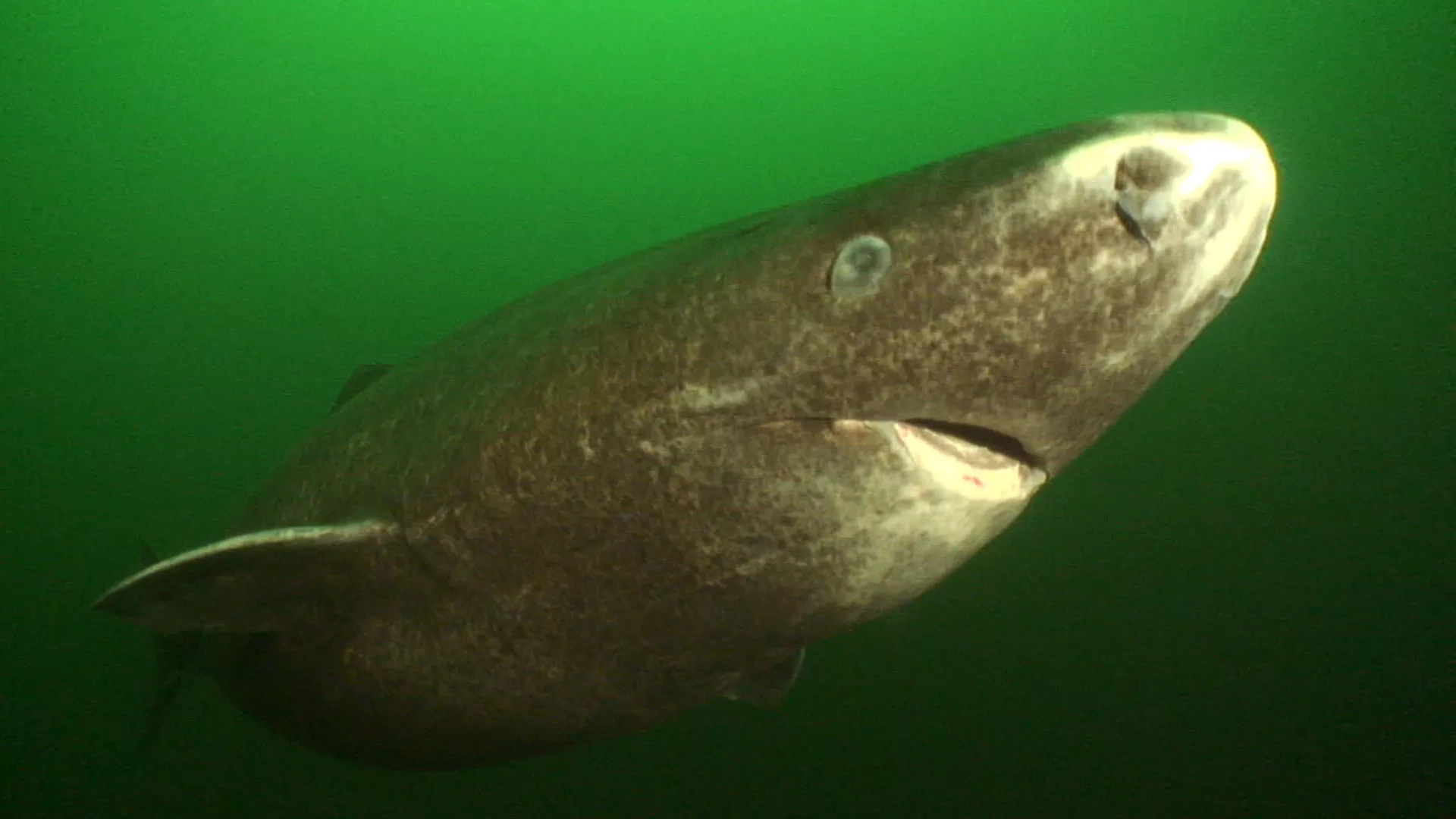
Greenland sharks. PHOTO | COURTESY
In the frigid depths of the North Atlantic and Arctic Oceans swims an ancient and enigmatic creature, the Greenland shark (Somniosus microcephalus). This Oldest Living Shark With Humanity Secrets, adeep-sea dweller, often shrouded in mystery, has recently astounded the scientific community with its extraordinary longevity. Research has unveiled that these sharks can live for more than 500 years, making them the longest-living vertebrates known to science.
The Greenland shark’s remarkable lifespan was discovered through groundbreaking research that combined cutting-edge technology and innovative methodologies. Previously, the age and longevity of these elusive creatures remained a mystery due to the challenges of studying them in their harsh, deep-sea habitats. However, a team of international scientists led by marine biologist Julius Nielsen of the University of Copenhagen embarked on a quest to unravel the secrets of these ancient mariners.
The key to unlocking the Greenland shark’s age lies in its eye lenses. Unlike other body parts that undergo renewal and change over time, the eye lenses of these sharks remain largely unchanged throughout their lives. This unique characteristic allowed researchers to employ radiocarbon dating techniques on the eye lens nuclei, which retain carbon isotopes absorbed from the environment during the shark’s early years.
Radiocarbon dating, a method often used in archaeology and paleontology, provided a window into the past, revealing the age of these sharks with remarkable precision. The results were astounding: the oldest Greenland shark in the study was estimated to be around 392 years old, with a potential range of up to 512 years. This discovery not only shattered previous records for vertebrate longevity but also offered new insights into the biology and ecology of these deep-sea giants.
Greenland sharks grow slowly, at a rate of about 1 centimeter per year, and reach maturity late in life, around 150 years old. This slow growth and delayed maturity are believed to be factors contributing to their extraordinary lifespan. Living in the cold, deep waters of the North Atlantic and Arctic Oceans, where metabolic rates are slower, also likely plays a role in their longevity.
The implications of this discovery extend beyond mere curiosity. Understanding the biology of Greenland sharks can provide valuable insights into aging processes and longevity, potentially offering clues for human health and medicine. Additionally, the study of these ancient creatures sheds light on the ecological dynamics of deep-sea environments and the impact of human activities on these fragile ecosystems.
Despite their ancient lineage and impressive longevity, Greenland sharks remain elusive and understudied. They are slow-moving and often reside at depths of up to 2,200 meters, making them challenging subjects for observation. However, continued research and conservation efforts are crucial to protect these ancient mariners and ensure their survival in the face of changing ocean conditions and human activities.
In conclusion, the discovery that Greenland sharks can live for more than 500 years has captivated scientists and the public alike. These ancient creatures, silently gliding through the deep, dark waters of the North Atlantic and Arctic Oceans, serve as a testament to the enduring mysteries of the natural world. As we continue to explore and understand these remarkable sharks, we gain not only knowledge about their biology but also a deeper appreciation for the incredible diversity and resilience of life on our planet.





